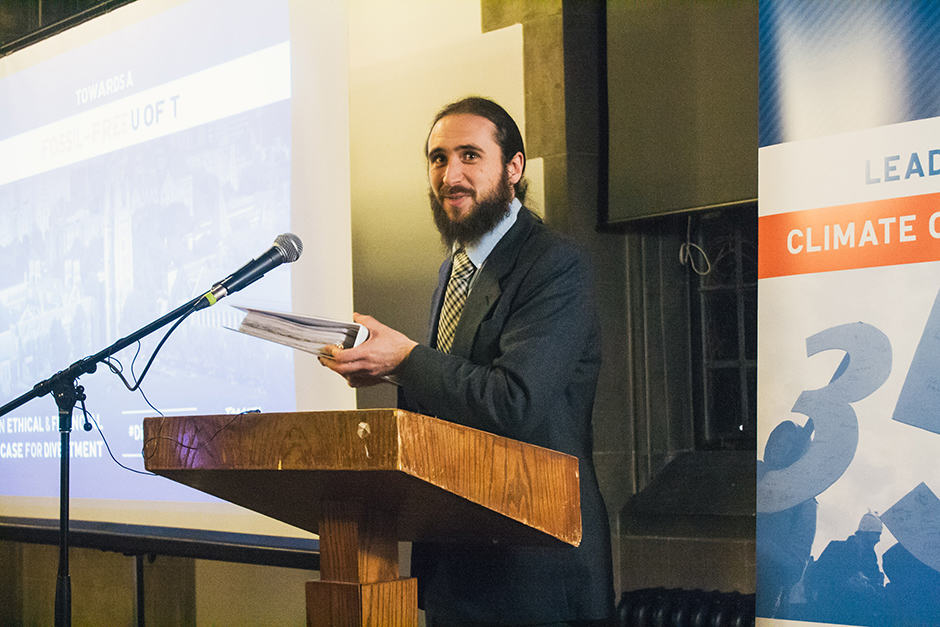Lately, the fossil fuel divestment campaign has garnered a lot of attention. And this is disconcerting, because divestment simply doesn’t work. As such, activists’ energy would be better spent elsewhere.
Divestment cannot hurt oil companies financially. Indeed, divestment, or the sale of shares, will only transfer these shares between investors without any discernible effect on profits or share prices.
Some might argue that the negative publicity that accompanies divestment is reason enough to continue the campaign. In the case of the oil industry, however, more bad press won’t matter — the sector already ranks last or second-last in US public perception polls, largely due to the British Petroleum oil spill in 2010. In any case, three-quarters of the world’s oil production come from state-owned companies, which are immune to divestment.
Disputable claims on financial impact aside, Toronto350’s stated objective is actually to fight global warming by revoking big oil’s social license to operate. That is, big oil’s “extraction of dirty energy” should become “socially and politically unacceptable.” This goal doesn’t make sense.
Global warming is actually a consumption problem: fossil fuel is over-consumed because people only care about the price they pay at the pump. The pollution that this consumption causes is not reflected in the price of gas, and is therefore ignored at the consumer level. As such, the way to effectively fight global warming is to reduce the demand for gasoline. Campaigns to that effect could call for more global warming awareness, much heavier taxes on gasoline, or more subsidies and investment in alternative energy sources to make them cheaper.
What’s more, demonizing big oil won’t reduce the amount of fossil fuel we burn. If anything, it is the consumption, not the production, of gasoline that needs to lose its social license. One need not look any further than the tobacco industry — the poster child of divestment campaigns — to see an example of how targeting consumption, rather than production, can be a more effective tool for activists.
Smoking prevalence in Canada has dropped from 50 per cent of the population in 1965 to 15 per cent in 2012, this pattern continued without any deviation during the early 1990s when divestment was occurring. This is not surprising. People don’t stop smoking because tobacco companies are evil. Rather, they stop smoking because smoking is evil. Cigarette consumption is now frowned upon because it imposes heavy costs on the public healthcare system, harms others through secondhand smoke, and, most importantly, kills the consumer. This change in attitude towards consumption is achieved through research on the effects of smoking, package warnings, and bans on smoking in public spaces. The quickly forgotten divestment campaign played little, if any, role.
One might wonder why divestment cannot just take place alongside other campaigns to fight global warming. If nothing else, it might serve as a good symbolic victory. Well, this is because divestment sends the wrong message.
For change to happen, average consumers will need to make significant sacrifices. Of course, governments and companies should play a role too. In many cases, they already are. Purchases of electric cars in Ontario, for example, are already accompanied by a rebate of up to $8,500 from the provincial government.
But the public is all too ready to put the burden of sacrifice on others and the divestment campaign risks giving it an additional excuse. By shifting the blame for global warming onto big oil, the campaign is covering up for the real culprit: average consumers who won’t cut back on consumption to save the environment.
In the fight against climate change, nothing will make a difference in the way that changing the public’s attitudes towards consumption will, and to that extent, the divestment campaign is futile. Moreover, it potentially gives people an excuse not to make necessary sacrifices and takes attention off of less sensational goals that may actually save our planet. Whether or not oil companies do well is irrelevant to the end goal. But one could bear in mind that the fall in demand for oil in the developing world last year shaved off $95 billion in market capitalization from Exxon Mobil and Chevron. What scares big oil more than anything else is the thought that people might stop consuming gasoline.
Li Pan is a third-year student at Trinity College studying financial economics and math. His column appears every three weeks.
Editor’s note: An earlier version of this article stated that the group Fossil Free U of T had hosted a meeting in Simcoe Hall last Monday, March 9. This was a misstatement and The Varsity regrets the error. Toronto350, a different environmental advocacy organization, will be presenting at an ad hoc meeting of the Presidential Advisory Committee on Divestment from Fossil Fuels on April 17.
Other changes made at the request of the author.


